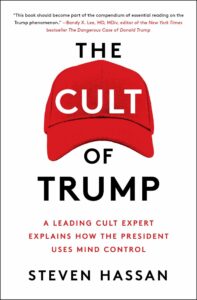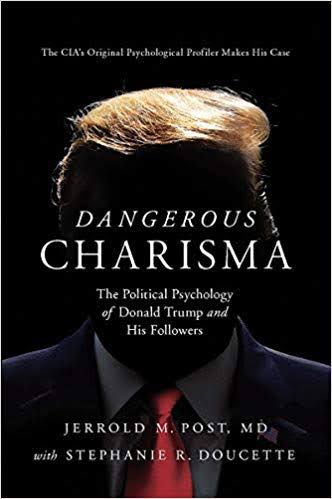
Dear Tanya,
I saw you last week on Compass and have since read your book about your experience in Hillsong. It was a most enjoyable read — your conversational style, your humour, sharing your pain, your observations, your joys, your caring.
I was reminded painfully (and sometimes with some brief moments of joy and appreciation) of my own experience in a religious cult. You were brought up in yours; I chose mine when in my late teens. Yours was what my cult would have called a “free and easy” one; by contrast I would describe mine as very tightly controlled and regimented. But your book has opened my eyes to see how similar the two different cults have been and are.
When I first left my cult I went straight for the libraries and bookshops to find books to read works that would help me make sense of my experience. What astonished me at the time was learning that though we had always thought of ourselves as unique, as a church teaching a way of life that could be traced back to the first and second chapters of Acts, and that no other church claiming to be Christian was the least bit like us, — what I learned was how very, very, similar, alike, we were to Mormons, Jehovah’s Witnesses, Hari Krishna or Moonies,. . . . you name it, they all share the same horrendous modus operandi (as you also came to learn). We could never imagine ourselves being like yours — Pentecostal, tongues, inviting outsiders to fellowship without prior vetting, music-dominated services, feel-good preaching — we were opposed to all of that stuff but your book has shown me that we were still the same.
Cults come in many guises.
But there are the same fundamental techniques of manipulation. There’s the same black-and-white thinking. I smiled when I read that you didn’t understand a word your first-year sociology lectures were talking about. I, too, could not make sense of my initial course in sociology. A minister had said things like our daily routines should be private and not the subject of study and I sure as hell could not make sense of trying to study how our lives worked according to scientific models. What I did not recognize at the time was that that sort of thinking was totally contrary to all I understood about life as something between “me and God and my church” — I could not recognize that I was living in a fairy tale world patterned after the Book of Revelation and Bible Prophecy.
There is the busy-ness of it all. That’s another common feature. There is no time for anything else. After our daily studies and meditations at home and our week-night bible studies and our other week-night speaking clubs and our weekly all day worship time and our other fellowship or “doing the work” time — there was no time to do anything but maintain the mind-game of fighting to hold oneself all together.
And the judgmentalism. Church members often commented to me that they expected me to become a minister eventually but what they did not know was that I had “confessed” to our authorities certain private doubts and alternative readings of the Bible (I actually came to realize I knew more about the Bible than those trained in our Bible Colleges) — and personal weaknesses. The authorities knew things that would always mean I would be deemed with some suspicion, some degree of wariness. I could continue to attend so long as I shut up about it all.
You mention gays. Yes, they “did not exist” in our church, either. Though looking back I can now see what I failed to see at the time about some of my associates. I knew then that they were struggling with a pain I could not fathom but now I can see what they were going through, or at least the root cause of their unfathomable pain in such a church.
The church — yours and mine — cannot understand “man’s ways” which are the “ways of the devil”. I think of the many people who needed just a little wisdom that could be gleaned from some basic understanding of psychology, people, say, with pasts that involved PTSD, with people who are at various points on the autism spectrum, with drug addicts, . . . our churches are pretty much guaranteed to make their conditions and suffering worse. But for a time they will continue to put on a brave face and play make-believe with their “new self”.
And yes, why is it that your church began in much the same way as ours — with a man who would today be condemned as a sexual predator and who sought some sort of escape from his personal failings by means of some charismatically shared visions.
And the pain of leaving and leaving it all behind. Discovering that one’s friends, one’s “brothers and sisters in Christ”, are nowhere to be found. They are behind cement walls and out of sight and hearing range. They are not fearing enough for your salvation to come looking for you. You are dead to them. That was one of the hardest parts, as you know. Discovering that people you believed were spiritual family, closer than your physical family, only cared for you insofar as they saw you as part of their “body of Christ”. Leave it and you vanish like a fly out the window.
When you wrote the book it was clear you were still working through your feelings about leaving. It took me some years to do the same. Quite some years. I went through various stages as you have done. I think by now I really do have it pretty much for most part out of my system. I think that because I no longer write about it as much as I used to and I have less interest in engaging with the topic as I used to.
What is also frustrating is seeing others leave only to turn to some other idionsyncratic cultish world of their own. They missed the point.
I have since studied other movements like the radicalization of extremists, in particular suicide bombers and Islamist terrorists. I wrote about various studies about those persons on this blog and was always mindful of how similar the recruitment processes and experiences of those young men and women were to yours and mine. Now we see new forms of extreme right-wing radicalization and conspiracy theory groups: there we see the same processes at work only without the religious cloaks that we are familiar with.
When I left my cult, I thought for a while I would enter a world of enlightenment and freedom. That was only partly true. I — and no doubt you, too — can see “mind-control” and radicalization techniques at work a mile off, whether it’s in the world of religion or politics or some other social movement – or should that be “antisocial” movement.
It was a good and refreshing reminder of the world of the cult experience, Tanya, and I thank you for your book. I hope others who are beginning to question their experience with Hillsong or something similar read it and find assurance through it — assurance that they are not mad, but very normal, and that they are saner than they have ever been for having those doubts.
Sincerely,
Neil
P.S. And omg, what a relief it is to be rid of that Hillsong Prime Minister who boasted he was secretly laying hands on every victim of a natural disaster that he touched, and who had no respect for fundamental democratic norms, and the rest… oh the pentecostal/cult smugness that just reeked through!











